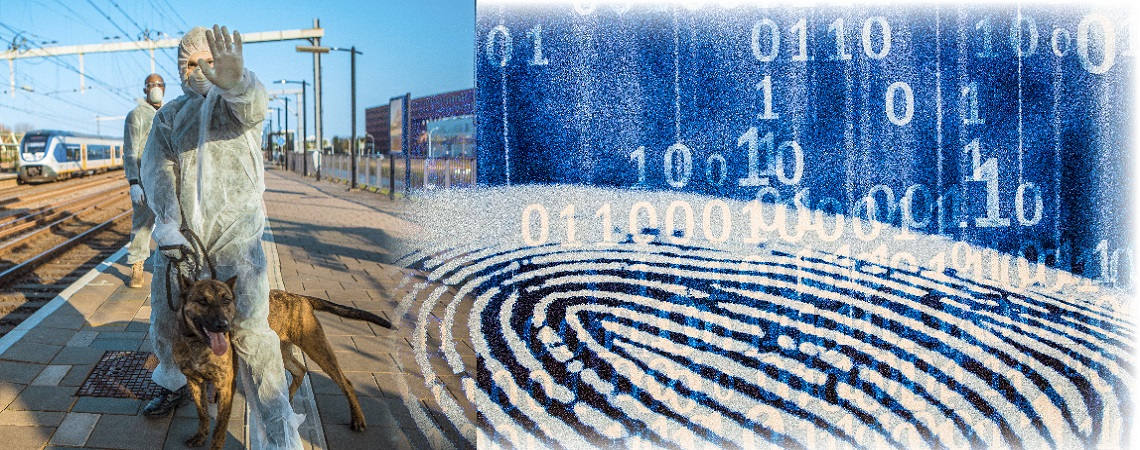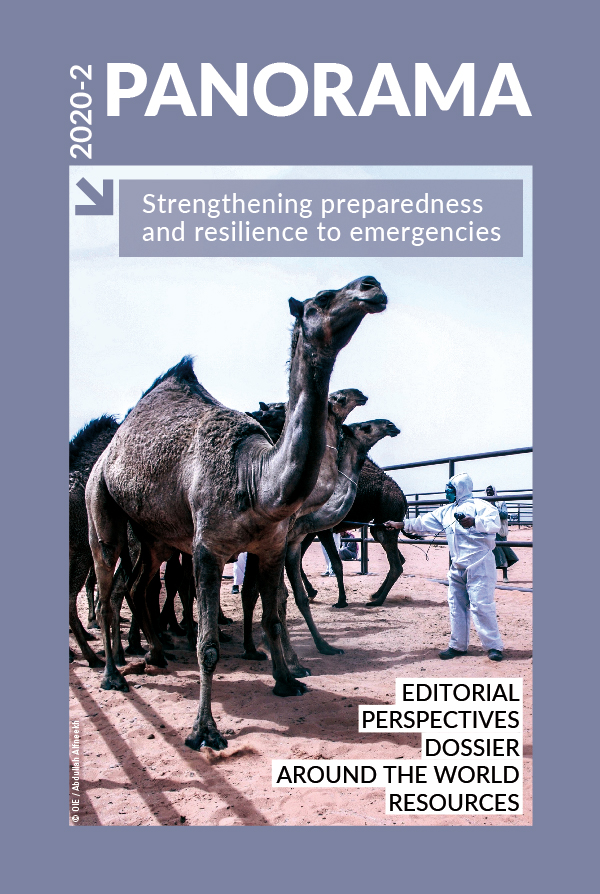Perspectives Posted on 2021-03-08 08:49:39
Joint actions
Building resilience against agro-terrorism and agro-crime
Keywords
Authors
D. Donachie (1)*, F. Ewann (2) & F. Poudevigne (3)
(1) Preparedness and Resilience Department, World Organisation for Animal Health (OIE).
(2) Bioterrorism Prevention Unit, Chemical, Biological, Radiological, Nuclear and Explosives (CBRNE) and Vulnerable Targets Sub-Directorate, Counter-Terrorism Directorate, International Criminal Police Organization (INTERPOL).
(3) Emergency Management Centre for Animal Health (EMC-AH), Food and Agriculture Organization of the United Nations (FAO).
* Corresponding author: d.donachie@oie.int
The designations and denominations employed and the presentation of the material in this article do not imply the expression of any opinion whatsoever on the part of the OIE, INTERPOL or FAO concerning the legal status of any country, territory, city or area or of its authorities, or concerning the delimitation of its frontiers and boundaries.
The views expressed in this article are solely the responsibility of the author(s). The mention of specific companies or products of manufacturers, whether or not these have been patented, does not imply that these have been endorsed or recommended by the OIE, INTERPOL or FAO in preference to others of a similar nature that are not mentioned.
Established in October 2018, the project aims to foster coordination at the national, regional, and international levels. It focuses on regions where the previous work of the three organisations has identified gaps in various aspects of emergency management that may make countries vulnerable to agro-crime and agro-terrorism. The target regions include the Middle East, North Africa and South-East Asia. However, while the project concentrates on these regions, its outputs will be relevant to all countries worldwide.
To ensure that the resulting capacity building is fit for purpose, the project is currently assessing the global situation for emergency management by identifying areas that are vulnerable to agro-crime and agro-terrorism; understanding the cost-effectiveness of investing in preparedness; and using OIE, FAO and INTERPOL tools to examine emergency management, including the relationship between the law enforcement and veterinary sectors.
Based on this evidence, the project team is designing tools, workshops, and simulation exercises to pilot in the target regions. Training will include workshops on the principles of emergency management, including how to design, deliver and learn from a simulation exercise, how to write a contingency plan, and how to command and control the situation during an agro-terrorism event. To test capacity at the national and regional levels, tabletop simulation exercises will be held, based on an agro-crime or agro-terrorism scenario. All activities will include participants from both the law enforcement and veterinary sectors.
These activities will culminate in an international simulation exercise to test coordination and communication at the national level (of selected countries), as well as at the regional and international levels. The exercise will be designed around the response to an agro-terrorism scenario in which law enforcement and veterinary sectors must cooperate.
Finally, a Global Conference on Emergency Management will be held at the end of the project to showcase the project’s activities to a large multisectoral and interdisciplinary audience. The project partners hope to rally support from the international community to adopt an all-hazards approach to animal health emergencies; promote the inclusion of Veterinary Services in whole-of-government emergency and disaster frameworks by enhancing coordination between the law enforcement and veterinary sectors; and to foster a much stronger international emergency management network.
http://dx.doi.org/10.20506/bull.2020.2.3142













